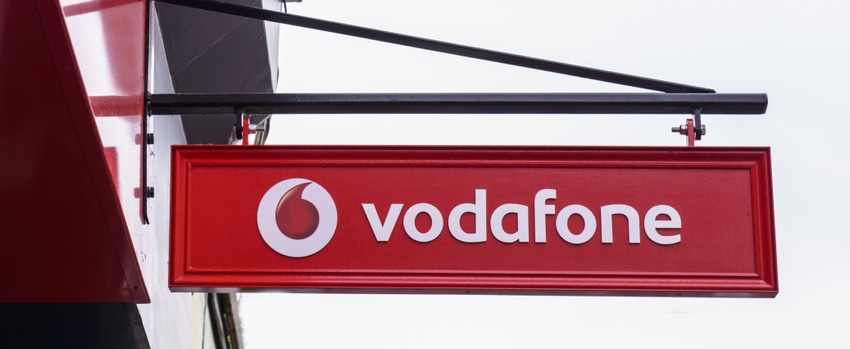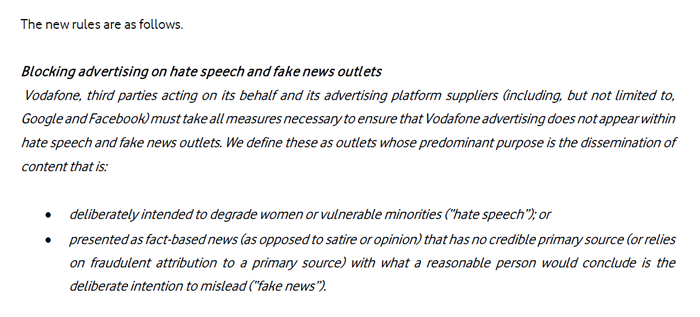Vodafone stays hands-off on hate speech issue
Vodafone has weighed into the fake news and hate speech saga by redefining its existing policy on advertising transparency and integrity, while at the same time hedging its position.
June 6, 2017

Vodafone has weighed into the fake news and hate speech saga by redefining its existing policy on advertising transparency and integrity, while at the same time hedging its position.
It’s an interesting move from the telco, in an area which is potential political and PR minefield. Many of the telcos and OTTs will have rules of combating hate speech and protecting corporate reputations, Facebook’s were leaked recently, though few have been brave enough to put forward their position into the public domain.
In reality, this move seems like nothing more than an attempt to distance the telco from any negative perceptions associated with editorial pieces or opinions of individuals. By publishing these guidelines, Vodafone is saying to the world ‘this is our position, we don’t like hate speech, but if anything slips through the net, it’s not our fault’. It puts the responsibility of monitoring such behaviours on the doorstep of the brands that facilitate Vodafone advertising, as opposed to the telco itself.
It is a clever but also potentiually irresponsible move. Yes, publishers and content curators such as Facebook have a responsibility to ensure hate speech does not appear on their platforms, but Vodafone also has a responsibility to manage its own brand.
Companies can only blame others for where their adverts appear for so long. If they were that serious about it, they would manage their own advertising strategies. But alas, it is too expensive and too complicated to do in-house. The risk of damage is very high, therefore outsourcing and reallocating the responsibility elsewhere is the best route. It’s clever, immature and irresponsible.
“Hate speech and fake news threaten to undermine the principles of respect and trust that bind communities together,” said Vodafone CEO Vittorio Colao.
“Vodafone has a strong commitment to diversity and inclusion; we also greatly value the integrity of the democratic processes and institutions that are often the targets of purveyors of fake news. We will not tolerate our brand being associated with this kind of abusive and damaging content.”
Another typically corporate move is redefinition of the policy itself (see image below). It’s very vague. It operates in the grey areas, where it could mean absolutely everything and of course nothing. How can you 100% guarantee something is ‘deliberately’ intended to offend? What is the definition of a credible source? There is a lot of wiggle room.
Yes, Vodafone has made a small step towards addressing hate speech. If other brands were to do the same, advertising platforms might start taking their responsibility to monitor content more seriously, but this is a move which reeks of nothing more than corporate strategy. Vodafone has distanced itself from taking any responsibility for brand association – its definition is so broad it forces no-one’s hand and comes over as more of a defensive move than a tactic to tackle hate speech.
We’d like to see more brands addressing difficult questions like this, but we’d also like to see them do it with a bit more commitment and bravery.

About the Author(s)
You May Also Like











_1.jpg?width=300&auto=webp&quality=80&disable=upscale)


.png?width=800&auto=webp&quality=80&disable=upscale)